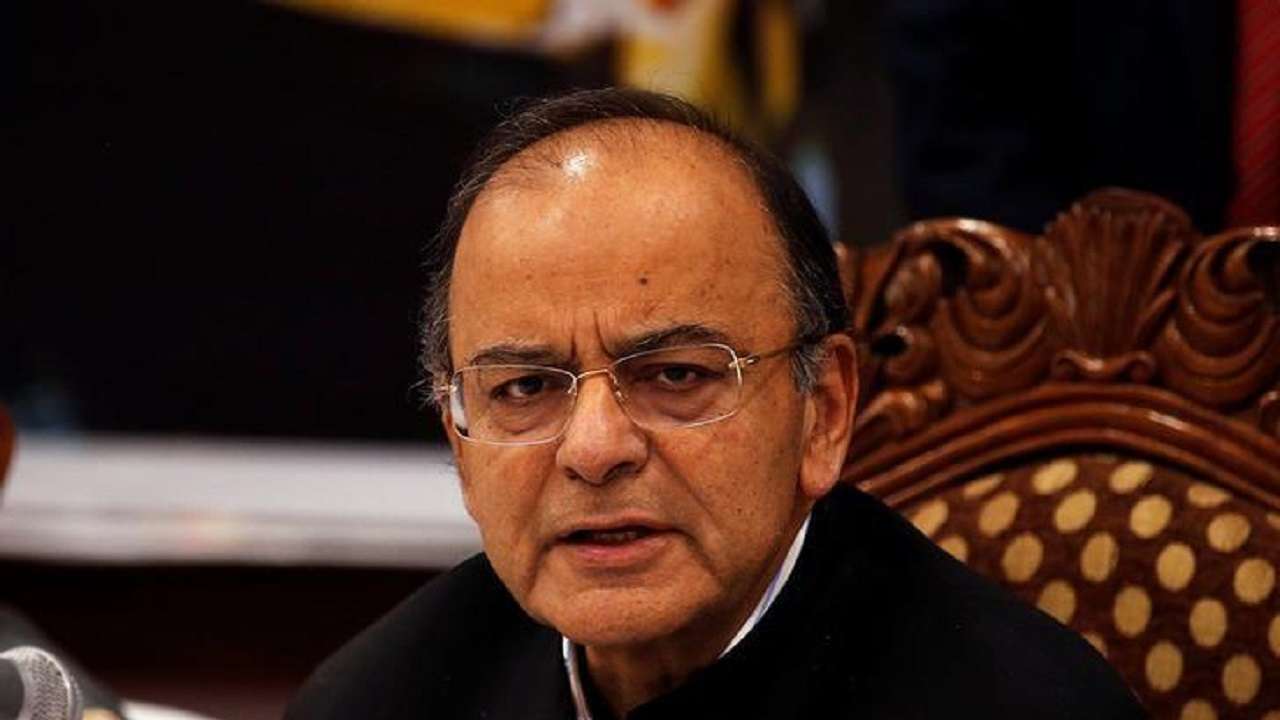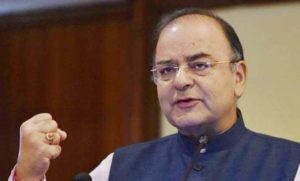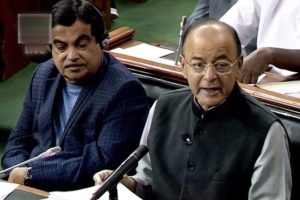Budget 2018: Announcements around Digital India !

 News Gateway / Digital India / New Delhi /
News Gateway / Digital India / New Delhi /
In a bid to strengthen its commitment towards the digitisation drive it had embarked upon, Finance Minister Arun Jaitley announced that the government will lay greater focus on its ambitious ‘Digital India’ programme with an outlay of Rs 3,073 crore for the next financial year. After having a chaotic 2017, the government is hoping on soothing the digital sphere of India by boosting digital payments and e-governance services. The announced budget of Rs 3,073 crore will help in harnessing the potential of emerging technologies such as Artificial Intelligence, robotic automation, and the Internet of Things (IoT). He further said that Niti Aayog will plan a layout for a national programme to direct the government’s collective efforts into AI research and development of related applications to the betterment of the citizens.
The Budget 2018 announcement concluded with mixed reactions by various industries. However, the fintech sector appeared buoyed by the measures announced for the Digital India programme. The sum of Rs 3,073 crore will enable many fintech startups to boost their businesses, potentially translating into benefits for Indian consumers. Digital payments firms expressed satisfaction with the announcement made under the Budget 2018. “A reformist budget for startups and digital India. Government’s impetus on digitising the rural hinterlands, focus on smart cities and commitment to blockchain technology, will encourage the promotion of digital payments across the country, thereby making India truly digital. Further, disallowing cash payments beyond Rs 10,000 by trusts and institutions will boost digital payments,” said Bipin Preet Singh, Co-founder, MobiKwik.

While the fintech industry looks pleased with announcements around digital payments, the other side of the industry, which is relatively new in India, could feel the pinch. The cryptocurrency market in India that includes the startups hosting blockchain technology has been left high and dry in the Budget 2018. FM Jaitley said the government, in no capacity, can allow or legitimise the use of blockchain currency in India since it considers them as illegal. While cryptocurrencies such as Bitcoin, Litecoin, and Ethereum have been rendered illegal in India, the scope of their exchange has not been defined in the Budget 2018. The fintech players have applauded this move but, on the other hand, have expressed that there should be a compliance over the digital currencies. “The government should consider regulating cryptocurrencies than curbing their use entirely,” said Singh.
Sivarama Krishnan, Partner and Leader Cyber-security, PwC India said, “It is heartening to see that the Budget 2018 has put a spotlight on cyber technologies and focused on creating CoEs (Center of Excellence) for emerging technologies such as Artificial Intelligence, Machine Learning, IoT, Big Data and Blockchain, etc. The CoEs will be a key towards building solutions which embed security by design and privacy by design. In addition, the move to dispel ambiguity around the use of cryptocurrencies in India will help contain cybercrime and cyberterrorism.”

Apart from the industry based on the digital payment ecosystem in the country, government’s ‘Digital India’ programme includes other areas and government’s initiatives. FM Jaitley announced that the Department of Telecom, or DoT, will work with the Indian Institute of Technology (IIT) Chennai to establish indigenous 5G centres in the country. The government is bullish about the deployment of the next-generation 5G wireless technology in India. Last year, the 5G technology was at the centre stage during the India Mobile Congress 2017. Many tech giants including Nokia, Ericsson, and Huawei announced plans to synergise with the Indian government over an accelerated rollout of 5G wireless infrastructure along with rest of the world.
“We welcome the focus of the Union Budget on disruptive technologies such as Artificial Intelligence (AI), Big Data, Internet of Things (IoT) and Robotics. With the renewed focus on Digital India, we hope that the Government of India also considers additional reforms to the telecom sector. Reforms that will create a predictable, flexible, lightly regulated and reliant on technology policy framework that incentivizes the businesses to invest, reinvest and to compete in India’s telecom market on a level playing field basis. Broadband access will spur demand for digital services and usher in a new era of digital revolution, establishing India as one of the most robust ecosystems for investment and innovation in the world,” said Priya Mahajan, Head of ASPAC Public Policy & Regulatory Counsel, Verizon Enterprise Solutions.
Besides, FM Jaitley allocated a sum of Rs 10,000 crore to boost the digital infrastructure growth of the country. This will be utilised in furthering the track of BharatNet project, which recently entered into its second phase. In the next financial year, the BharatNet project will aim to connect 2.5 lakh gram panchayats by March 2019. “The task of connecting 1 lakh gram panchayats with high-speed optic fibre network has been completed under Phase 1 of Bharat Net program,” Jaitley said.
Moving over to the announcement that most people today look forward to, FM Arun Jaitley announced that the government is proposed to set up 5 lakh Wi-Fi hotspots in the country that will provide broadband access to 5 crore rural citizens. The announcement made by FM Jaitley targets the rural areas where the Internet penetration is weaker than the one present in the metro, tier-1, and tier-2 cities of India. Furthermore, the government will also focus on investing in research training, and skilling in robotics, AI, digital manufacturing, big data intelligence, quantum communications, and art of the things. FM Jaitley said that DST will launch a mission on cyberspace in support of the establishment of a centre of excellence in India.